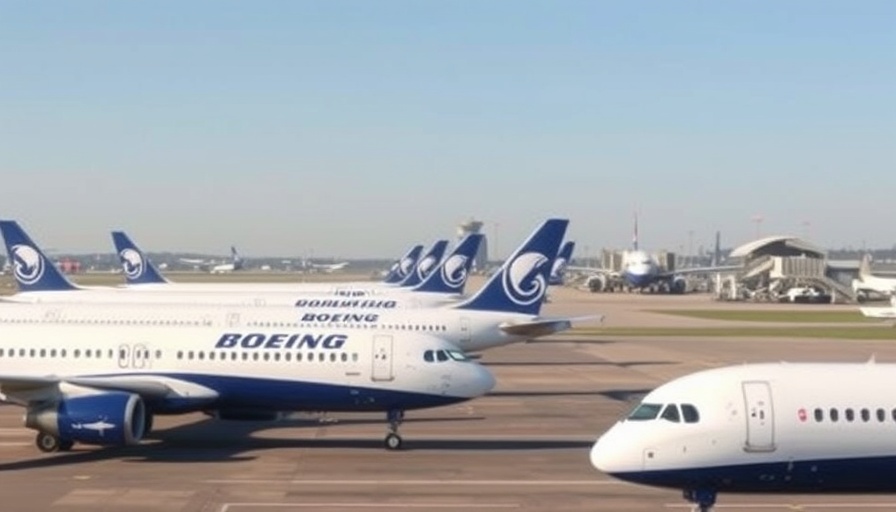
Boeing's Major Move Toward Chinese Market: What It Means for U.S. Trade Relations
As part of a broader trade agreement aimed at easing tensions between the United States and China, Boeing is reportedly in negotiations to sell hundreds of aircraft to China. This potential deal is a significant diplomatic maneuver that reflects the ongoing efforts to stabilize economic relations between these two global giants. Such talks come at a pivotal moment when economic cooperation seems crucial in the face of various challenges, including inflationary pressures and supply chain disruptions that have afflicted global markets.
Navigating the Storm: Boeing's Recovery Post-Pandemic
The aerospace industry has struggled significantly during the pandemic, and Boeing has been no exception. Sales dwindled as airlines reduced fleets and grounded planes amid travel restrictions. However, a deal of this magnitude could mark a turning point for Boeing, allowing the company to recapture lost market share and spur economic recovery not only in its operations but across the aviation sector. Recent predictions suggest a rebound in air travel that could further propel demand for commercial airplanes, especially from countries like China that are intensifying their fleet expansion efforts.
A Flight Path of Mutual Benefit: Trade and Cultural Exchange
Beyond economic implications, this potential deal could foster a deeper cultural exchange between the U.S. and China. Aviation is more than just business; it's a bridge for tourism, education, and international cooperation. By increasing the fleet capabilities of Chinese airlines, we may witness expanded routes and more opportunities for Americans to engage with Chinese culture and vice versa. This cultural connection could benefit both nations as they navigate complex interpersonal and geopolitical issues.
Counterarguments: The Price of Political Fallout
Despite the potential benefits of this agreement, some caution against viewing it solely as a win for U.S. interests. Critics point out that increasing sales to China could lead to heightened scrutiny regarding data security and technology transfer issues. With past trade agreements showing mixed results, critics urge policymakers to tread lightly, ensuring that agreements do not compromise national security or technological integrity.
Future Predictions: What Lies Ahead for the Aviation Industry
Industry experts predict that if the negotiations succeed, we might see a slew of strategic partnerships emerging beyond Boeing, creating a ripple effect within the aviation sector. Other aircraft manufacturers could join the fray, vying for China’s business as demand grows amidst fast-paced economic recovery in Asia. Additionally, technological advancements in aircraft efficiency may take center stage as companies look to innovate and meet global environmental standards.
Conclusion: The Takeaway from Boeing's Prospective Deal
The ongoing discussions regarding Boeing's aircraft sales to China not only highlight essential economic considerations but also serve as a reminder of the interconnectedness of our globalized world. Balancing commercial interests with diplomatic relations represents a critical challenge for stakeholders on all sides. Keeping a keen eye on these developments is vital as we unravel the complexities of international trade, especially in increasingly uncertain times.
 Add Row
Add Row  Add
Add 



Write A Comment